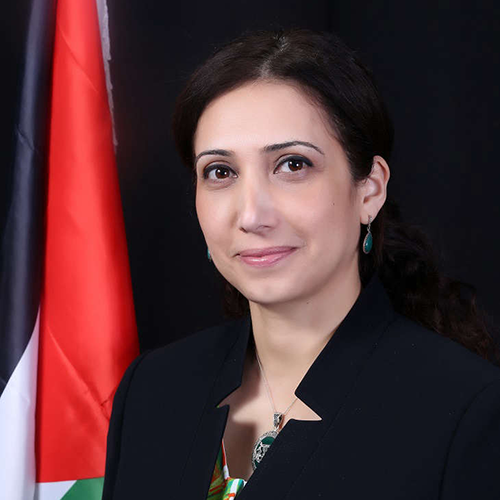September 19, 2024
Since its inception in 2017, the UN World Data Forum (UNWDF) has evolved into a key global event for data and statistics. Starting with 2,000 attendees at its first forum in Cape Town, South Africa, the UNWDF has grown into a vibrant community of over 20,000 participants. This diverse group includes representatives from governments, civil society, private organizations, donor and non-profit entities, international and regional agencies, geospatial professionals, academia, and other stakeholders who are integral to the data ecosystem.
The UNWDF is more than just a conference; it has become a critical platform for promoting data innovation, fostering partnerships, and securing high-level political and financial support for data initiatives. These efforts are essential to developing a roadmap that ensures data-driven strategies for achieving the Sustainable Development Goals (SDGs). As we look forward to the 5th UNWDF in Medellín, it's important to reflect on the journey that has brought us to this point and the continuing relevance of the Forum in today’s data-driven world.
Looking Back: Aligning the UNWDF with the 2030 Agenda
The 2030 Agenda for Sustainable Development requires a robust global commitment to data. To support this, the United Nations Statistical Commission established two key groups in 2015: the Inter-agency and Expert Group on SDG Indicators (IAEG-SDG) and the High-level Group for Partnership, Coordination, and Capacity Building (HLG-PCCB). One of the first creations of the HLG-PCCB was the Cape Town Global Action Plan (CTGAP), which was adopted during the first UNWDF to lay the foundation for sustainable statistical systems.
The CTGAP emphasizes the importance of enhancing statistical capacity at the national level as a cornerstone for achieving the SDGs. High-quality data is crucial for monitoring progress and assessing outcomes, and the plan serves as a living document that evolves with developments in the data ecosystem. An ongoing update effort is currently in progress to ensure that the plan remains relevant to today’s challenges, with the revised version set to be unveiled at the upcoming UNWDF.
The Role of Data in Today’s World
In today’s world, where misinformation can often masquerade as fact the importance of the role of National Statistical Offices is even more crucial and instrumental in aiding decision-making for governments, organizations, and humanitarian agencies. They offer vital insight into population demographics, health outcomes, economics, and social services. Ensuring the principle of "leaving no one behind,"Official statistics play a key role in: identifying vulnerable groups, guiding resource allocation, monitoring progress, facilitating evidence-based decisions, supporting recovery efforts, promoting international cooperation, fostering social cohesion, and addressing information gaps during crises such as the current ongoing Israeli aggression against our people in Gaza Strip.
By using reliable data, governments and organizations such as UN agencies and other humanitarian agencies can design targeted interventions, monitor progress, and build resilience while fostering trust and collaboration among various stakeholders. Ultimately, official statistics are crucial for informed decision-making, ensuring effective responses to crises and inclusive support for all community members. For the same reasons the importance of data quality cannot be overstated. The 2030 Agenda has created opportunities for broader partnerships and technical cooperation within the global statistics community, as well as at regional and national levels. Embracing innovation and staying current with modernization efforts, such as establishing partnerships and developing national SDG platforms, has enhanced collaboration and coordination in the implementation of the 2030 Agenda.
The UNWDF and its surrounding mechanisms offer a unique opportunity to continue these discussions, debates, and strategies around modernization, trust, and the effective use of data. The UNWDF remains a vital space for the global data community to address these issues and set a path forward.
Shaping the Future of Data: The 5th UNWDF
The Program Committee for the 5th UNWDF has been instrumental in shaping the Forum's sessions. Comprising experts and leaders from diverse stakeholder groups within the data ecosystem, the Committee ensures that the program reflects a wide range of ideas and meets the needs of the global data community. Their responsibilities include determining the thematic areas for session proposals, evaluating, and shortlisting these proposals, developing concepts for plenary sessions, and promoting the UNWDF within their networks.
Building on the successes of the previous four forums in Cape Town, Dubai, Bern, and Hangzhou, the 5th UNWDF continues to drive data innovation, nurture partnerships, and secure high-level political and financial support for data initiatives. The Forum’s thematic areas across innovation, use, trust, and partnership will address the most pressing issues identified by the global data and statistics community.
Bridging Communities and Tailoring Data to Users’ Needs
The effective use of data hinges on its relevance to users and its adaptability to their evolving needs. Advances in data science tools, including machine learning, AI, and an abundance of data sources, have significantly enhanced our ability to generate real-time insights and predictions for better strategic decision-making. However, dialogue between data users and producers remains essential to building lasting partnerships and ensuring that data use retains its human element.
Investing in data tools and engaging with users is crucial for maintaining the relevance of data in decision-making processes. The 5th UNWDF’s carefully designed program builds on past experiences and offers an exciting array of sessions, high-level plenary discussions, and innovative showcases of data solutions. The Forum is well-positioned to bridge the gaps between different communities and ensure that data remains central to the SDG agenda.
In my capacity as co-chair of the Programme Committee, I invite you to engage fully with this unique opportunity. The 5th UNWDF promises to be both enjoyable and informative, contributing to the ongoing global effort to harness data for sustainable development.
